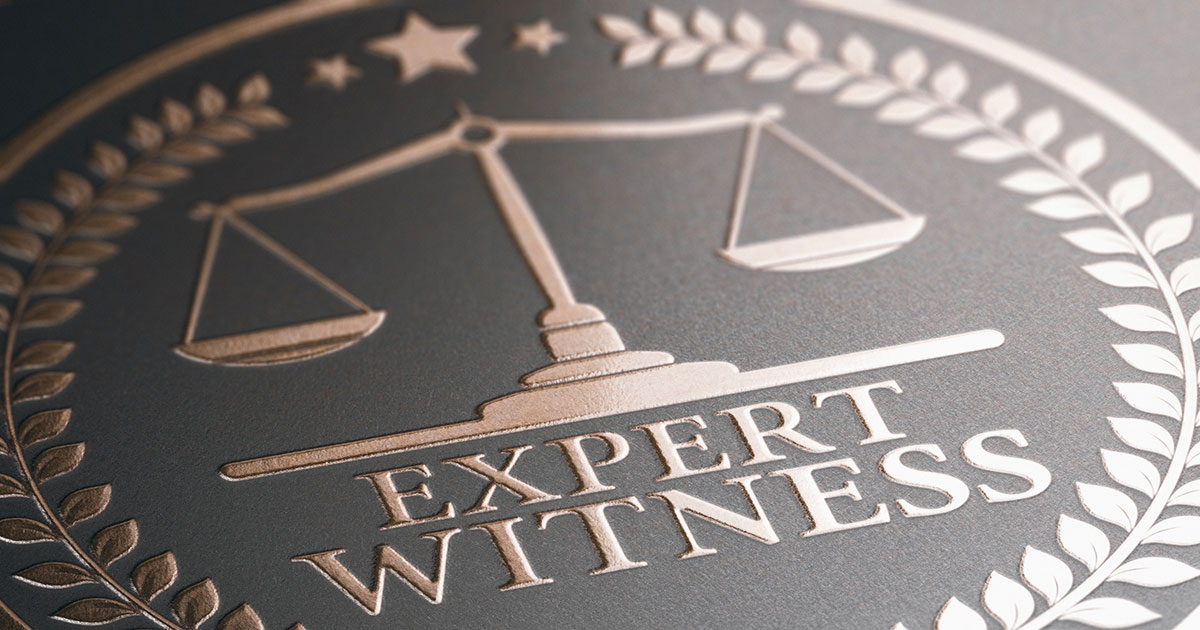
Dec. 6, 2023 – As of December 1, trial lawyers accustomed to citing a trio of U.S. Supreme Court cases when seeking to admit expert witness testimony in federal courts will have to update their brief templates.
That’s because a set of amendments to the Federal Rules of Evidence governing the admission of expert witness testimony codify holdings from case law.
Daubert and Its Progeny
In Daubert v. Merrell Dow Pharmaceuticals, 509 U.S. 579 (1993), the U.S. Supreme Court ruled that under Federal Rules of Evidence (FRE) 702, scientific opinion testimony must be based on the expert’s scientific knowledge, and that knowledge must be grounded in reliable scientific methods. The Daubert inquiry turned on five factors:
methods capable of being tested;
the error rate of those methods;
whether the methods have been peer-reviewed;
whether there are standards governing the operation of the relevant scientific technique; and
whether the methods are accepted in the relevant scientific community.
Before Daubert, a 1923 ruling by the U.S. Court of Appeals for the District of Columbia, Frye v. United States, 293 F. 1013 (D.C. Cir. 1923) governed the admission of expert opinions based on a scientific technique.
 Jeff M. Brown, Willamette Univ. School of Law 1997, is a legal writer for the State Bar of Wisconsin, Madison. He can be reached by email or by phone at (608) 250-6126.
Jeff M. Brown, Willamette Univ. School of Law 1997, is a legal writer for the State Bar of Wisconsin, Madison. He can be reached by email or by phone at (608) 250-6126.
Under Frye, decided before the enactment of FRE 702, an attorney seeking to admit an expert opinion based on a scientific technique had to show that the technique was generally accepted in the relevant scientific community.
In General Electric Co. v. Joiner, 522 U.S. 136 (1997), the Supreme Court held that in weighing the admissibility of scientific opinion testimony, the trial judge must make sure the evidence is both relevant and reliable.
In Kumho Tire Co. Ltd. v. Carmichael, 526 U.S. 137 (1999), the Supreme Court extended the Daubert principle to all expert testimony based on “skill- or experience-based observation,” not just scientific opinion testimony.
Amendments Make Three Changes
The amendments to FRE 702, which were adopted unanimously by the U.S. Supreme Court in May, make three changes to the rule.
First, the amendments specify that the preponderance of the evidence standard governs the admission of expert witness testimony.
In other words, an attorney seeking to admit expert witness testimony must show that it is more likely than not that the witness and the testimony meet each of the four factors listed in subsections (a)-(d) of the rule.
Second, in a note to the amendments, the Advisory Committee on Evidence pointed out that some federal appellate courts have held that expert testimony must “appreciably help” the trier of fact, which the committee concluded was too strict a standard.
Instead, the committee suggested that under FRE 702, the fact that an expert’s knowledge would merely “help” the factfinder understand the evidence or determine a disputed fact was a better standard.
The third change made by the amendments is in subsection (d), the fourth factor, which governs the principles and methods that underlay the expert’s testimony.
The new subsection (d) reads: “the expert’s opinion reflects a reliable application of the principles and methods to the facts of the case.”

“The amendments make the variability of the different courts standardized,” said Gail Groy, a Madison-based solo practitioner, who recently presented a seminar on the changes to FRE 702. “The objective was to not have the variability or prejudices because it’s now in the rule. It can only make the practice of law better.”
‘It Can Only Make the Practice of Law Better’
Gail Groy, a Madison-based solo practitioner, recently presented a seminar on the changes to FRE 702. The seminar is available for replay.
Groy, who was an engineer before she was an attorney, looks at FRE 702 differently than most trial lawyers.
“As a scientist, I’d be watching it really carefully to see whether your expert’s evidence would be brought in,” Groy said.
Groy said the amendments codify in the rule principles shaped by federal appellate case law.
“They’re good decisions, and now they’re in the rules of evidence.”
According to Groy, the goal was to come up with a single standard for the admissibility of expert witness testimony.
“The amendments make the variability of the different courts standardized,” Groy said. “The objective was to not have the variability or prejudices because it’s now in the rule. It can only make the practice of law better.”
Judge Will Still Be Gatekeeper
The amendments shouldn’t work a big change in lawyers’ approach to expert witness testimony, Groy said.
“The judge is still going to be the gatekeeper, which is what the Daubert decision outlined,” Groy said. “It’s really what we have all been practicing.”
But lawyers will need to get in the habit of citing FRE 702, instead of Daubert and other cases.
Groy thinks the amendments to FRE 702 will make judges’ jobs easier.
“You’re presenting your expert to support what you are trying to prove,” Groy said. “It gives the judge a little bit more help, because it says, ‘more likely than not’ and then sets out a, b, c, and d. It doesn’t have to be solely peer-reviewed or solely scientific. I think the rules have made it clearer, as opposed to case law, which can go either way.”
